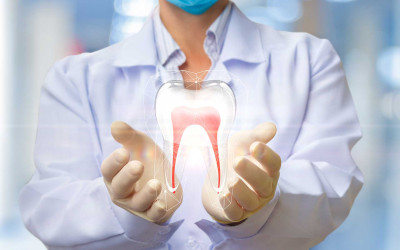Problems Caused By Gums Diseases

Problems Caused By Gums Diseases
- 21 July 2022
- 5908 views
Gum disease can be defined as an infectious disease seen in the tissues surrounding and supporting the teeth.
This content is for informational purposes only and does not replace medical advice, diagnosis, or treatment. Please consult a healthcare professional for any health concerns.
Table of Contents
Gums form the basis of the mouth and teeth. For this reason, a disease that occurs in the gums negatively affects both oral health and general health. Since gingival diseases can occur at any age, it is of great importance to have regular medical check-ups. Because advanced gum disease can cause tooth loss.
What is Gum Disease?
Gum disease can be defined as an infectious disease seen in the tissues surrounding and supporting the teeth. It is also known as periodontal disease in the periodontology department.
It can occur in children, adults, and the elderly. At the same time, although there is no caries, infection can occur in the gums. If left untreated, it is a disease that can cause bad breath, loosening of the teeth and tooth loss in the future.
What are Periodontal Disease Types?
Types of gum disease vary according to which parts of the mouth the infection affects. Types of gum disease are as follows:
Gingivitis
It is a situation where an existing infection affects the gums. At this stage, the gums bleed, redden and swell. Bad breath may also occur. If left untreated, the infection progresses and causes the development of the periodontitis type.
Periodontitis
In periodontitis, in addition to the gingiva, periodontal fibers and jawbone are also affected by the infection. In this type, pockets are formed between the teeth and gums where bacteria can settle. These pockets are called periodontal pockets.
Periodontal pockets cause the infection to settle easily and the disease to progress. If the necessary treatments are not performed at this stage, the supporting tissues are lost and the teeth begin to wobble.
Periodontal Abscess
It is a regional, painful and rapidly developing lesion involving the gingival margin. Abscess formation is an inflammatory reaction. It is usually treated with the use of antibiotics.
What are the Symptoms of Gum Disease?
Symptoms of gum disease are as follows:
- Sensitivity in teeth
- The most important symptom of gum disease is bleeding in the gums. Because a healthy gum does not bleed at any time.
- Swelling in the gums
- Bad breath
- Redness or blue-purple discoloration of the gums
- Gum recession
- Rocking or displacement of teeth
If you think you have gum disease, you should go to the dentist without wasting time and get the necessary treatment.
Problems Caused by Gum Disease
In cases where gum disease is not treated, it causes some problems on general health. These problems are as follows:
Microorganisms in Gums May Damage Organs
Microbes in the gums can multiply directly in the organs. In other words, all microbial organisms originating from the gums can travel through the body through the circulation. This condition is defined as sepsis or septicemia. It is manifested by the presence of bacteria in the blood.
Causes Diabetes, Kidney Diseases and Rheumatoid Arthritis
Microbes resulting from gingivitis can cause systemic inflammation. Therefore, gum disease; diabetes, pregnancy complications, and other diseases such as rheumatoid arthritis. At the same time, there are studies showing that gingival diseases are risk factors for lung diseases, intestinal diseases and chronic kidney disease.
May Cause Atherosclerosis and Heart Diseases
Gum diseases are among the factors that increase the risk of occlusion of the vessels and the development of heart diseases. At the same time, there are studies showing that it worsens existing heart diseases.
Increases the Risk of Stroke
Gum disease can increase the risk of stroke caused by blocked arteries.
May Cause Respiratory Diseases
Bacteria formed in the gums can cause lung infections and cause lung diseases.







